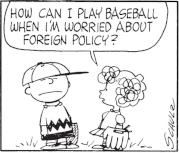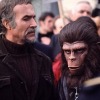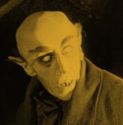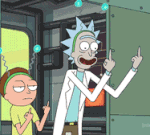|
I rented The Killing of a Chinese Bookie yesterday and it's the Criterion version with both cuts. I'll probably only have time to watch one of the two, so which one is the more worthwhile?
|
|
|
|

|
| # ? May 14, 2024 20:49 |
|
I honestly couldn't make it through either one. And I sat through Opening Night and A Woman Under The Influence without a problem. Maybe Gena Rowlands is the key.
|
|
|
|
I went with the longer version and ended up wishing I had gone with the shorter one. It's not a bad movie, but the burlesque scenes seem to go on forfuckingever.
|
|
|
|
I may have just forgotten, but this just bothered me about the Gremlins: When Billy goes to the school after the science teacher tells him the cocoon hatched, he goes and find the teacher dead. A bit later he's scratched by the gremlin there, and it escapes into an air vent. My question is, what the hell happened to that gremlin? Billy didn't kill it so for all we know, the little fucker was still alive after the end of the movie.
|
|
|
|
Nuke Goes KABOOM posted:I don't know if it happens in the movie, but in the book the author causes a huge problem by having the time traveler visit himself in the past more than once (he has sex with himself at sixteen, the author has an odd idea of how hormones work for young men). Logically speaking, that would mean that each instance of him would be traveling about - therefore there'd be an infinite number of them visiting his wife and also the ending doesn't matter as he can be replaced. I think you find it's fairly implicit in stating they are jerking each other off. Not loving each other. Which is odd, yeah, but not that wierd, also, I really don't see what's wrong with the idea that he, the character, might have done that. And to note, there are not infinite incarnations of him. He is growing older all the time. He has no control over what or where he can go. He can't be replaced for that last visit. He turned it into a prophecy, but sooner or later, it was going to happen. I can't actually imagine the hypothesis for time travel you took away from the book. I think you might have missed the bit where when he travels away, he always travels back to the time he left. He doesn't jump within a jump, so to speak.
|
|
|
|
Serious Michael posted:At the beginning of Watchmen, it shows an older looking FBI warning. Is this one still prevalent and I just haven't really noticed it? Or was it used because the movie takes place in the 80's and they don't want to ruin MY IMMERSION? I didn't notice any odd FBI warnings except for the standard one before the trailers on Blu-Ray so it just might be a lack of notice. How many warnings does a film need anyway since some see to have 3 of them (FBI, Interpol, really old one that looks like it came from a VHS tape at the end of archival discs)
|
|
|
|
Biff Rockgroin posted:I may have just forgotten, but this just bothered me about the Gremlins: It probably got out and went to the movie theater with all the other ones?
|
|
|
|
NYIslander posted:I didn't notice any odd FBI warnings except for the standard one before the trailers on Blu-Ray so it just might be a lack of notice. How many warnings does a film need anyway since some see to have 3 of them (FBI, Interpol, really old one that looks like it came from a VHS tape at the end of archival discs) I hate those things. At the end of a film I can't remember, one popped up and it was this scanned photocopy, large sections of which was handwritten, and it was lopsided.
|
|
|
|
I think that's the ultimate question. After all these years, the FBI warnings at the end of DVDs still like like they were just copied off of a grungy VHS of The Goonies taped off TV. I've just very recently seen a few DVDs with new FBI warnings, but why did it take so long? How hard is it to just make a new one for everyone to use for the next thirty years? But then, who really gives a poo poo?
|
|
|
|
Biff Rockgroin posted:I think that's the ultimate question. I think it's basically a funding issue. For someone to make a change to this, someone has to write up why it has to be done. Someone has to set aside money for that and justify the reason for it. Someone's got to draft it up and it has to go through legal. For all I know there's a subcommittee in the House that has to approve of it. It's not like a studio logo where they've got a black hole of petty cash to toss around making new logos to keep current and hip. Basically, the old one wasn't broken enough for someone to go hat in hand looking for money to make and distribute a new one. I'm guessing either something changed in the legal wording or some new antipiracy push had a line item for it.
|
|
|
|
In Robocop, when he returns to his house to find it empty, why does everything inside, the photo, papers, plants, seem like they've been burned up, but the interior shows no fire damage.
|
|
|
|
Serious Michael posted:In Robocop, when he returns to his house to find it empty, why does everything inside, the photo, papers, plants, seem like they've been burned up, but the interior shows no fire damage. Maybe his wife burned them after he died? Widows/widowers tend to do that in movies.
|
|
|
|
When they show a gun shooting in a movie, I always assume that it's firing blanks, but are the blanks also the cases being expelled also part of the blanks?
|
|
|
|
twistedmentat posted:When they show a gun shooting in a movie, I always assume that it's firing blanks, but are the blanks also the cases being expelled also part of the blanks? Yes. A blank is pretty much a case with a normal gunpowder load but no bullet, instead being plugged with something much weaker that just keeps the powder in. The powder burns as normal and the casing is ejected as the action cycles. Blanks are still dangerous because the hot gases and vaporized remains of the plug still come shooting out the barrel of the gun and can cause serious damage to anything within a few inches of the muzzle before they dissipate. And, as Brandon Lee discovered, if there is anything substantial in the barrel already a blank will turn it into a bullet. haveblue fucked around with this message at 05:21 on Sep 11, 2009 |
|
|
|
haveblue posted:Blanks are still dangerous because the hot gases and vaporized remains of the plug still come shooting out the barrel of the gun and can cause serious damage to anything within a few inches of the muzzle before they dissipate. As seen in "In Bruges," where Colin Farrel blinds a man in one eye by firing a blank at close range.
|
|
|
|
Rake Arms posted:As seen in "In Bruges," where Colin Farrel blinds a man in one eye by firing a blank at close range. My hunting safety instructor's cousin was killed by a blank. Him and his friends were making some zombie movie in the woods. They were shooting a mock execution or something. He might have survived but he had a seizure disorder or something that prevented conventional CPR methods. He said it was his cousin's death that inspired him to started teaching gun safety classes. Blanks are no joke. KillRoy fucked around with this message at 06:19 on Sep 11, 2009 |
|
|
|
There's a part in Sleuth ('72) that bugs me where one man fires a blank into the base of another man's skull as a prank, and the guy lives
|
|
|
Rake Arms posted:As seen in "In Bruges," where Colin Farrel blinds a man in one eye by firing a blank at close range. Wasn't that Tigerland?
|
|
|
|
|
Armyman25 posted:Wasn't that Tigerland? Apparently he does it a lot. In In Bruge, he goes on a date with Clemence Poesy and goes back to her apartment. Her former boyfriend shows up and threatens him with a gun. Farrel grabs the gun away, but the boyfriend pulls out a knife and informs him that the gun is loaded with blanks. So, Farrel simply puts the gun up to the guy's eye and partially blinds him. It's both hilarious and badass at the same time.
|
|
|
|
Magic Hate Ball posted:There's a part in Sleuth ('72) that bugs me where one man fires a blank into the base of another man's skull as a prank, and the guy lives That wasn't really very well thought out on Anthony Schaffer's part, or he just didn't bother to look into it. The logic of that film is that blanks just make a loud noise. At least the remake addresses the issue, having Wyke shoot Tindle from across the room rather than point blank into the back of his head.
|
|
|
|
haveblue posted:Yes. A blank is pretty much a case with a normal gunpowder load but no bullet, instead being plugged with something much weaker that just keeps the powder in. The powder burns as normal and the casing is ejected as the action cycles. Cool. I always assumed that all blanks where like the ones I used when I worked in a historical fort as a Highlander showing tourists how a brown bess was loaded and fired. Though that makes sense because a cartridge for such a gun was made of paper.
|
|
|
|
I've got a question that is probably a really stupid one, but it's been bouncing around in my head for a while. What exactly defines a movie as a deconstruction of a genre? I've heard of Falling down being referred to as a deconstruction of the angry white man genre, but to me it was just an extremely well-done version of it. Does it become a deconstruction when it plays to the stereotypes - cop on his last day, man losing it in a traffic jam - or is this just a factor? I've also heard Scream referred to in this way, again, is this because it is self-aware and makes reference to other horror movies, including having a movie buff?
|
|
|
|
|
Two Finger posted:What exactly defines a movie as a deconstruction of a genre? I've heard of Falling down being referred to as a deconstruction of the angry white man genre, but to me it was just an extremely well-done version of it. I wrote at length about this before on my blog; the conclusion I came to was basically that it comes down to either auteur theory, or whatever interpretation you derive from the work (i.e. the "death of the author") depending on which school of thought you subscribe to. Still, there are some very interesting cases to be considered. For instance, in Se7en, anger and whiteness both play major roles in the plot; however, the cop who is on his last day is black, and it's his partner who's the angry white man - could this be construed as a deconstruction of the tropes of the genre? By contrast, in 8 1/2, Marcello Mastroianni is in a traffic jam (in a dream sequence), and is generally dissatisfied, but not outwardly angry - is this perhaps a prefiguring of AWM before the genre began to take hold in the early to late seventies? It's actually pretty hard to nail down what is and isn't a deconstruction when you consider the origins of the genre. Bad Lieutenant and Taxi Driver are usually considered to be the defining films of AWM, but if you watch them from that context, neither of them actually fulfill most of the criteria - Harvey Keitel's character isn't so much angry as conflicted most of the time, and Travis Bickle's better tirades are mainly directed inwardly, or spoken when he's alone. It's also interesting to note that if you were to overlook 'white', probably the quintessential AWM actor of this decade is Denzel Washington. If that's the case then his entire resume could be considered a deconstruction of the genre (Man on Fire, John Q., American Gangster, etc).
|
|
|
|
Taking note that I speak from no authority... I would take a deconstruction as meaning it explicitly and deliberately uses what are now commonly held features of the genre or style of film it represents. In other films of this type, those features might figure in organically or simply find their way in as a matter of course. For example, killer bee movies almost always feature someone doing a fire walk. They don't build the film around it but if you were deconstructing the ultimate killer bee movie, you'd be quite conscious of the fire walk and would put it in for that reason. The meet-cute, nudity, The other feature I would associate with a deconstruction of a movie genre is to apply commentary on those features. That can be by putting an ironic spin on them, turning them on their heads, or just applying a new perspective to it. I think this is the key element that separates the deconstruction from your "extremely well-done version". To give a current example, Sorority Row is an 80s slasher movie and contains all the elements you'd expect from it (reviving killer, boobs, whittling down the cast, going off alone) but doesn't really apply any spin or commentary on it. Scream, as you noted, does many of these things but gives it perspective so that you can appreciate the elements themselves in a different light. So Gale waits for the killer to spring back up because she knows and understands what's going to happen. To the movie that spawned the question, in thinking about it I guess it is a pretty valid deconstruction. Where most of the films like it are of the exploitation revenge structure, this one strips away a lot of that motivation and instead wraps it in a populist message. So instead of it being spurred by a murdered family or rape it's just based on innocuous things that the audience responds to like a stand up comedy act. Hate seemingly pointless road work? Don't like inflation and convenience store gouging? Shittty quality control in fast food? So instead of him being against the bad gang or criminal syndicate, he's basically lashing out at society which is quite a spin and involves the audience in something far less sensational than responding to violence. It also breaks down those exploitation elements when he wanders into the supremacist's store as it hits a lot of those buttons and tries to provide the link to those old "normal guy pushed to the edge" movies.
|
|
|
|
Two Finger posted:I've got a question that is probably a really stupid one, but it's been bouncing around in my head for a while. From Wikipedia: Deconstruction is the name given by French philosopher Jacques Derrida to an approach (whether in philosophy, literary analysis, or in other fields) which rigorously pursues the meaning of a text to the point of undoing the oppositions on which it is apparently founded, and to the point of showing that those foundations are irreducibly complex, unstable or impossible. My interpretation: That which depicts something by pointing out the mechanics of how/if it works. Like a picture frame filled with a painting of what looks like an empty frame. Or a movie where literally you see the details of a film strip. Or a car painted to look like it's clear (a picture of the chassis painted on the exterior of the car). For the most part, when adapted into film terms, it means a narrative structure that spends a chunk of it's energy devoted to discussing the very thing happening on screen. SCREAM discusses the horror movie genre while itself being a horror movie. FIGHT CLUB discusses splicing bits of porn into the movie (which the movie itself contains) and the idea of a narrator with no name or identity (which we learn Ed Norton is), amongst other things. Of course, the number-one reference to this idea, so far, is ADAPTATION. The main character writes the very movie you watch on screen, sort of. It's an over-used phrase, to be honest, and is usually done in a jarring and terrible way. VorpalBunny fucked around with this message at 05:48 on Sep 15, 2009 |
|
|
|
People also mix deconstruction and "meta", particularly in films about films, and there is some overlap. Adaptation. is very much so a metafilm in that, like you said, the main character is the writer of the film and it details his semi-fictional struggle to make something out of an unadaptable novel. 8 1/2, too, is extremely metafictional. I'm ambivalent about Day For Night, because it almost plays more like a celebratory fauxcumentary (indeed, no other film captures the sheer joy of filmmaking like Day For Night). I think Persona is a great deconstructivist film, because more than once it makes us aware of the fact that it is a film that we are watching, but I think that "deconstructivist" is a very nebulous term.
|
|
|
|
I wonder if SHERLOCK JR by Buster Keaton was the first film to toy with deconstruction: <<A young man (played by Buster Keaton) working at a movie theater takes a break from sweeping to read a book on how to be a detective. After work he buys a box of candy for a girlfriend and presents it to her along with a ring. Another suitor, the deceitful 'sheik', steals a watch from the girl's house, pawns it, and tries to impress her with a larger box of candy. The main character is accused of taking the watch and is forced to leave the girl's house. He returns to his job at the theater and falls asleep in the projector room. The young man dreams he can walk through the film screen and into an adventurous mystery movie. The characters are people from his real life, with the sheik playing the villain and the main character himself being the inventive and invincible detective Sherlock Jr. He manages to solve the crime and save the girl in this contained narrative before waking up back in the projector booth. The girl shows up and admits that her family had made a mistake in suspecting him. Unsure of what to do next, the hero looks to the characters in the movie currently playing for suggestions.>>
|
|
|
|
Until now I had no idea that "Angry White Guy" is a movie genre.
|
|
|
|
Dr_Amazing posted:Until now I had no idea that "Angry White Guy" is a movie genre. Not to be confused with the "Angry Young Man" genre of the British New Wave.
|
|
|
|
Watching Total Recall again and I've wondered about this 500 times: In the scene with the Rekall salesman trying to sell the woman on a Rekall trip, is the TV playing footage of Arnold working out?
|
|
|
|
Encryptic posted:Watching Total Recall again and I've wondered about this 500 times: In the scene with the Rekall salesman trying to sell the woman on a Rekall trip, is the TV playing footage of Arnold working out? Just re-watched this scene on my DVD. They never show the dude's face, and the IMDb trivia section doesn't say anything about it, so I'm leaning towards probably not
|
|
|
|
Helmacron posted:I think you find it's fairly implicit in stating they are jerking each other off. Not loving each other. Which is odd, yeah, but not that wierd, also, I really don't see what's wrong with the idea that he, the character, might have done that. Because straight men don't jerk off other men. It's not implicit what he does. Also, you can't exist at the same time as you're already existing, that's why the movie made a good move in not having him hunting in the scene where he dies. Since he died and still exists (in the book) the one that was hunting can now jump around replacing the one that was shot.
|
|
|
|
Binowru posted:Just re-watched this scene on my DVD. They never show the dude's face, and the IMDb trivia section doesn't say anything about it, so I'm leaning towards probably not Yeah, that's what I figured after re-watching the parts where you can see the screen in the background as well. Would be an interesting little WTF moment if it WAS him, since the movie plays around with whether the main plot was real or not. Encryptic fucked around with this message at 05:27 on Sep 28, 2009 |
|
|
|
What is up with the recurring theme of humans are good but flawed (or more specifically those qualities that make us good also make us flawed, but it is worth it because we are so good)? Going back to some older sci-fi like It Conquered the World (1956), Invasion of the Body Snatchers (1956), and The Stranger (1973) argue that sure we hate and kill and rape and pillage and burn, but we also LOVE and that is what makes us so great. I have also seen it in a few different fantasy stories, where several races exist but it always seems that man is supposed to be the best race. Even though elves (and sometimes other races), are shown to be smarter, more peaceful, and less destructive to their surroundings, they will come up with some reason why man is better (I believe LotR was along the lines of "men are greedy and corrupt, but they have courage.") Seeing the trailer for Surrogates looks like yet another "sure we could end crime and everyone could be happy, but crime and hatred is a part of being human, and humans are so great." I could see a few good movies that were to take an intelligent look at the relationship between violence and "being human", but are we really such an insecure race that we need to keep making movies to justify our actions and tell ourselves that we are the great race?
|
|
|
|
jjack229 posted:I could see a few good movies that were to take an intelligent look at the relationship between violence and "being human", but are we really such an insecure race that we need to keep making movies to justify our actions and tell ourselves that we are the great race? What is the other option? Besides Nihilism, what other option do we have than accepting what we are? There are countless movies depicting the "good" in people, but in the end we are flesh and blood humans. Are you suggesting we need movies where the "other" is the better option? Then we get INVASION OF THE BODY SNATCHERS from the 1970s, where humans were replaced, because we just didn't have our poo poo together. Plus, accepting the reality of humanity ("flawed but good") is the easiest way to tell a story that all audiences can identify with. Any more oblique, and you alienate people with your point of view. Thus, Hollywood goes for the mass audience with a message that placates the human ego. If anything, the INSTRUCTIONS FOR A FRUIT series is the best example of the "other" as the better option. VorpalBunny fucked around with this message at 01:00 on Sep 29, 2009 |
|
|
|
jjack229 posted:What is up with the recurring theme of humans are good but flawed (or more specifically those qualities that make us good also make us flawed, but it is worth it because we are so good)? understanding something as part of our nature (and our plight, so to speak) is not necessarily saying "humans are great." certain movies are of the idea that our flaws are in our nature and are beautiful anyway because of this. murder IS a flaw. love IS a strength. there's nothing wrong with trying to understand and/or justify the existence of our species. also, in lord of the rings, man is definitely not portrayed as the "best" race. i'd say elves and hobbits are written as the "good" races, if you wish to put it that way. all in all, this question perplexes me, because you're basically asking, "why does every movie study the nature of humanity and its flaws?" ...shouldn't they?
|
|
|
|
jjack229 posted:What is up with the recurring theme of humans are good but flawed (or more specifically those qualities that make us good also make us flawed, but it is worth it because we are so good)? I'm pretty sure self rationalization has been a part of human philosophical and spiritual culture for a long time as well. The bible says we're all sinners but we're also like the greatest thing ever. Free will is said to be a virtue worth celebrating even though that free will is used for crime. Robots are evil because they can't make a painting so it doesn't matter that they don't rape (although this isn't the case if the movie is about rape robots, which is a very efficient method of maximizing your rape potential). I think because we have advanced consciousness and nothing else around us seems to share that we feel we must be special. That's reflected in our arts and anything that challenges that is usually shown to be inferior in some way. So we're always aware of the lovely things we do every day and so we elevate the good things really high as a counterbalance. Similarly, when we run into a more advanced species, they'll be handicapped so as to not overshadow us entirely. So no matter what, the human capacity to love is the final part of the Captain Planet cadre and it won't worth without it.
|
|
|
|
Humans are inherently good but flawed. That's like saying why do they make movies where people communicate by speaking to one another - that's just a reflection of reality.
|
|
|
|
VorpalBunny posted:What is the other option? Besides Nihilism, what other option do we have than accepting what we are? There are countless movies depicting the "good" in people, but in the end we are flesh and blood humans. Are you suggesting we need movies where the "other" is the better option? My intention was not to ignore the "good" in people and just fall into Nihilism. Although, it would be interesting to see movies that actually explored the nature of "other" lifestyles without such a simplistic view that is normally used (preferably leaving the conclusion up to the audience instead of forcing on to them the correct way to live). VorpalBunny posted:Plus, accepting the reality of humanity ("flawed but good") is the easiest way to tell a story that all audiences can identify with. Any more oblique, and you alienate people with your point of view. Thus, Hollywood goes for the mass audience with a message that placates the human ego. I was thinking that the movies where actually delving into the issue, but most of the examples that come to mind basically stay at the "flawed but good" level and don't go much deeper. Which makes sense that a movie with humanity as the good guy is easier to relate to than calling into question the way that we see ourselves. i am not so sure posted:all in all, this question perplexes me, because you're basically asking, "why does every movie study the nature of humanity and its flaws?" ...shouldn't they? I am not against studying the nature of humanity and its flaws, in fact the failure to do so is what bothered me. In Invasion of the Body Snatchers (I have seen and enjoyed both the '50s and '70s versions), the story was about fighting back against an invasion, the "flawed but good" is a minor bit and could as easily been left out of the movie. Instead they throw in a couple of speeches about it without actually exploring human nature at all. It Conquered the World is even worse, when the main character discovers that there is an invading force he jumps to the conclusion that it is a mindless, soulless, emotionless collective and goes into a long speech about important humanity is. But as VorpalBunny pointed out, the issue of human nature is not neccesarily raised to explore it, but to give something for the audience to relate to as it is used in the above examples. I suspect Surrogates is similiar, in that human vs machine is not brought up to explore the nature of humanity, but to give the audience someone/something to root for as they watch an action whodunit. i am not so sure posted:also, in lord of the rings, man is definitely not portrayed as the "best" race. i'd say elves and hobbits are written as the "good" races, if you wish to put it that way. I agree about the LotR, in fact, that was my point. All the "good" races (humans, hobbits, elves, and dwarves) worked together to fight the "evil" races and all were shown to be lead viable lifestyles. But at the end of the story, it is the "Age of Man" and not collective kingdom (or seperate kingdoms) between the different races.
|
|
|
|

|
| # ? May 14, 2024 20:49 |
|
so because two movies fail at exploring this premise, that means there aren't enough movies that do it correctly? i can list so many movies that successfully raise the right questions about the human condition. i don't think surrogates is supposed to be revelatory in terms of conceptual thinking. so many.
|
|
|































